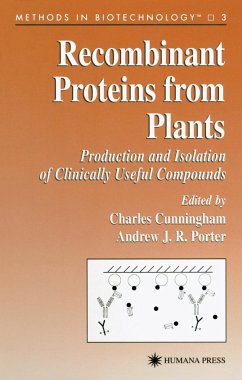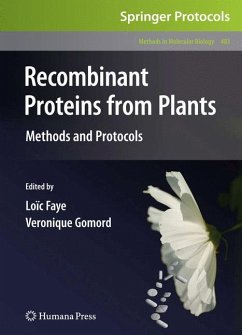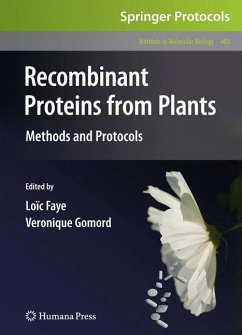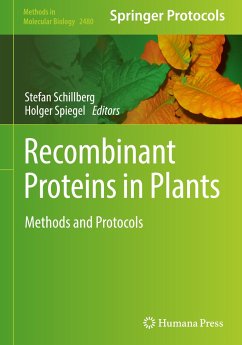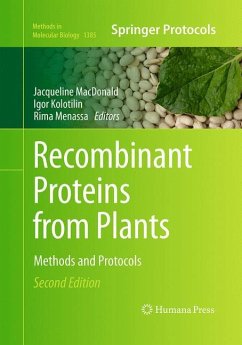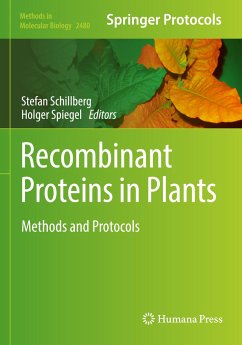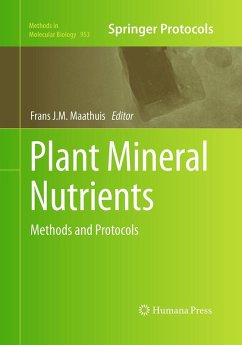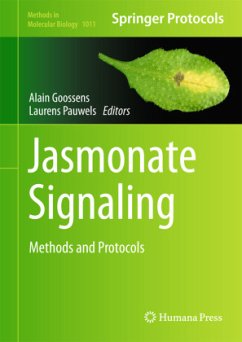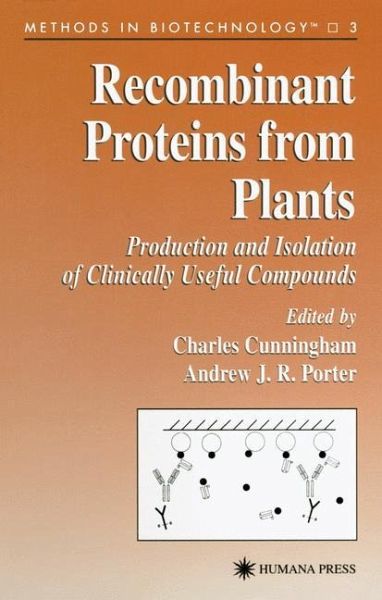
Recombinant Proteins from Plants

PAYBACK Punkte
38 °P sammeln!
Recombinant Proteins from Plants is one of the most exciting and fastest developing areas in biology. The latest molecular techniques are being applied to the exploitation of plants as novel expression systems for the p- duction and overproduction of heterologous and native proteins. Transgenic plant technology is currently used in three broad areas: the expression of - combinant proteins to improve crop quality by increasing disease/pest res- tance or increasing tolerance to stress, optimizing plant productivity and yield by the genetic manipulation of metabolic pathways, and the large-scale ...
Recombinant Proteins from Plants is one of the most exciting and fastest developing areas in biology. The latest molecular techniques are being applied to the exploitation of plants as novel expression systems for the p- duction and overproduction of heterologous and native proteins. Transgenic plant technology is currently used in three broad areas: the expression of - combinant proteins to improve crop quality by increasing disease/pest res- tance or increasing tolerance to stress, optimizing plant productivity and yield by the genetic manipulation of metabolic pathways, and the large-scale co- effective production of recombinant proteins for use as specialist industrial or therapeutic biomolecules. The intention of Recombinant Proteins from Plants is to provide c- prehensive and detailed protocols covering all the latest molecular approaches. Because the production oftransgenic plants has become routine in many la- ratories, coverage is also given to some of the more "classical" approaches to the separation, analysis, and characterization of recombinant proteins. The book also includes areas of research that we believe will become increasingly important in the near future: efficient transformation of monocots with Agrobacterium optimizing the stability of recombinant proteins, and a section highlighting the immunotherapeutic potential of plant-expressed proteins.





